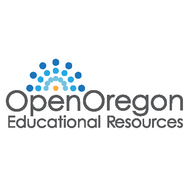WR 122 open/free syllabus
(View Complete Item Description)Course description: WR 122 continues the focus of WR 121 in its review of rhetorical concepts and vocabulary, in the development of reading, thinking, and writing skills, along with metacognitive competencies understood through the lens of a rhetorical vocabulary. Specifically, students will identify, evaluate, and construct chains of reasoning, a process that includes an ability to distinguish assertion from evidence, recognize and evaluate assumptions, and select sources appropriate for a rhetorical task. Students will employ a flexible, collaborative, and appropriate composing process, working in multiple genres, and utilizing at least two modalities. They will produce 3500-4500 words of revised, final draft copy or an appropriate multimodal analog for this amount of text. If the focus is primarily multimodal, students will produce at least one essay of a minimum of 1500 words, demonstrating competence in both research and academic argumentation.
Material Type: Syllabus




















